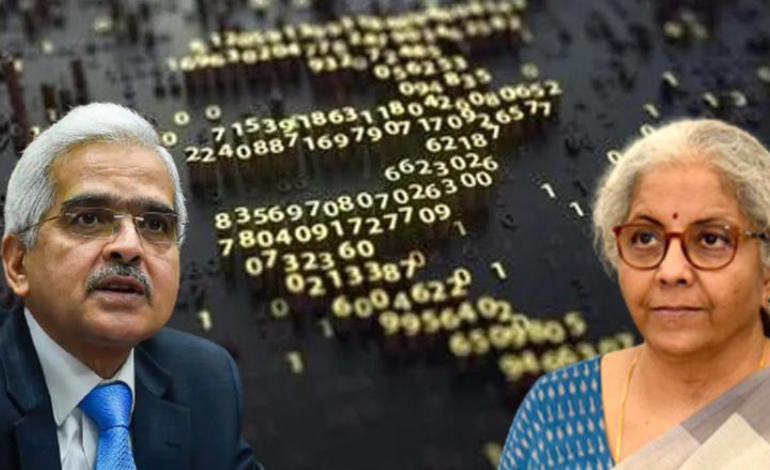
The Reserve Bank of India (RBI) announced on Monday that it will start pilot launches of the Digital Rupee (eâ1) for particular use cases on November 1, 2022. The first Digital Rupee pilot will start on Tuesday and will be in the Wholesale segment (eâ1-W), according to the notification.
State Bank of India, Bank of Baroda, Union Bank of India, HDFC Bank, ICICI Bank, Kotak Mahindra Bank, Yes Bank, IDFC First Bank, and HSBC are among the nine banks listed by the RBI.
In October of last year, RBI made a proposal to the government to extend the use of the paper rupee to include digital currency. RBI has already stated its opposition to private digital currencies.
The much-anticipated introduction of the CBDC was first officially confirmed by the Union government by Union Finance Minister Nirmala Sitharaman, who made the announcement earlier this year. The FM claims that the introduction of CBDC, which will be based on blockchain technology, will strengthen the digital economy.
Central Bank Digital Currency (CBDC) is a digital form of legal tender issued by a central bank, according to the Reserve Bank of India. Simply described, it is an electronic version of the Indian Rupee, a sort of fiat currency. As a result, it can be converted into fiat currency 1:1.
As per RBI, “CBDC is the legal tender issued by a central bank in a digital form. It is the same as a fiat currency and is exchangeable one-to-one with the fiat currency. Only its form is different.”
CBDC will have all the benefits associated with cryptocurrencies and other digital payment methods. A digital currency can never be physically destroyed, torn, burned, or otherwise harmed. Additionally, they are not physically lost. The lifeline of a digital form of currency will therefore be longer than that of notes.
Another key benefit of the Digital Rupee over other cryptocurrencies is that it will be regulated by a central authority, lowering the volatility risk associated with other digital currencies like Bitcoin.
The RBI has frequently voiced worries about the use of private cryptocurrencies like Bitcoin, Ether, and others for tax evasion, money laundering, and financing terrorism. Its own CBDC's introduction has been seen as a way to bridge the benefits and drawbacks of digital currency.